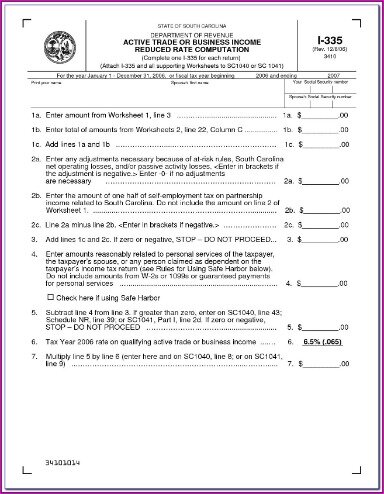How Long Should You Keep Documents?
Contents:


These records include anything like resumes, job applications and descriptions, performance reviews, and any employee files. Say you dispose of a property by selling it during the 2018 tax year, report the financial gain on your 2020 tax return, and file your tax return right on the tax deadline of April 17, 2021. That means you’d need to keep records connected to the property until April 17, 2024 (i.e. three years after the filing date of April 17, 2021). Any business deduction on your tax return can be questioned during an audit—even expenses under $75. Good business recordkeeping lets you prepare financial statements, helps you keep tabs on your expenses, and comes in handy if you ever get sued or audited.

Banks are required to keep records of all accounts for a minimum of 5 years by law. Some banks may keep records longer, especially if they are electronic. The IRS can write to you within the period of limitations to ask for a review extension far beyond the three-year mark, and if additional tax is assessed, the agency has 10 years to collect.
How Long to Keep Business Tax Records
Businesses organized as corporations should keep some additional documents. These include board and shareholder meeting minutes, annual reports, corporate bylaws and amendments, and a stock ledger permanently. Documentation of compliance with Title VII and the Americans with Disabilities Act in businesses with 15+ employees and the Age Discrimination in Employment Act .

Too many people tell small business owners that they can’t attain grants. By having your insurance coverage on hand, you may reduce your out-of-pocket liability in the settlement of any claim. When facing inquiries from the Department of Labor, the Social Security Administration, the Equal Opportunity Commission, or U.S. Citizenship and Immigration Services, your records can help you demonstrate a pattern of good practices.
What is a digital strategy and why does your business need one?
LegalZoom provides access to independent attorneys and self-service tools. Use of our products and services are governed by ourTerms of Use andPrivacy Policy. Discarding tax records too early could cause significant liability for your business. Be sure to retain any document needed for tax documentation for as long as you’re eligible for audit.
Her work has been featured in Forbes, Money, what is bookkeeping Insider, WealthFit, Accounting Today, LendEDU, CreditKarma and more. She has an MBA from Duke University and a degree in business economics from UC Santa Barbara. Our best expert advice on how to grow your business — from attracting new customers to keeping existing customers happy and having the capital to do it.
Copies of all current insurance policies should be maintained in separate files and kept for 10 years after the policies expire. For certain assets (residences, real estate, stocks, etc.), all statements, invoices, and purchase documents that substantiate cost should be kept, typically for seven years after the asset is sold. Depreciation schedules and asset-inventory records should be kept permanently.
The guidelines may vary depending on your industry and circumstances. It’s essential to understand which categories apply to your company to know what documents to keep. When your records are no longer needed for tax purposes, do not discard them until you check to see if you have to keep them longer for other purposes. For example, your insurance company or creditors may require you to keep them longer than the IRS does. These include company formation documents and ownership records such as stock ledgers, titles, deeds, property records, and contracts. Businesses or their accountants then record the accounting effects of transactions and file the supporting records based on the type of transaction and when it occurred.
You should retain lease and business loan documents that pertain to tax deductions for the seven-year period described earlier. Pension and retirement plans might fall under both IRS and Employee Retirement Income Security Act rules. Except for a few guidelines from government agencies, you won’t find many hard-and-fast rules about how long to keep your business records.
- Knowing how long to keep tax returns and other records can help businesses respond to information requests.
- Because the burden of proof is on you to back up every item on your tax return with documentation, the best approach to recordkeeping for small businesses is to try to keep as many records as you can.
- Businesses of all sizes are required to keep up-to-date records that reflect their gross income, expenses, deductions, and transactions.
- You need to keep your records long enough to cover the five-year retention period and the period of review for the relevant assessment.
The California Fair Pay Act requires employers to hold onto any documents expressing variance in pay between genders for 3 years. While we don’t have enough room to share retention laws for all 50 states, Texas and California have some notable laws worth mentioning. Besides these documents, you also need to keep a record of variance in pay between genders for two years after termination. That ensures compliance with the EPA, and the rest of the documents will help you comply with FMLA, FLSA, ADEA, and the Davis-Bacon Act. Regardless of state, you must hold onto employee medical records for 3 years after termination.
Insurance files
They can also help them assess the gains or losses realized from the sale or disposal of the property. When facing an audit, your financial records will help you substantiate the information you’ve reported on your tax filings. Small businesses are more likely to be audited than individual taxpayers. They’re also targets for lawsuits, even after their operations come to an end. In both events, you may need access to your business’s documents and financials to validate your claims and defend yourself against accusations of wrongdoing. Audits, reviews, and compilations are three important services that help businesses and organizations make informed decisions about their finances.
As tempting as it may be to toss everything once the IRS says you don’t need to keep it, you might want to think twice. Your insurance company or creditors may require that you hold onto things for a little longer. In general, receipts, canceled checks and bills will be enough to document your expenses. These documents should help you establish the date, place, amount and reason for the expense. The IRS requires you to keep records that support the income you received and the deductions that you take. So if you claim a deduction for a training course or a client lunch, the IRS wants you to keep the details of that — you may be asked about them at a later date.
- You must keep these records to figure any depreciation, amortization, or depletion deduction and to figure the gain or loss when you sell or otherwise dispose of the property.
- Employment tax records should be kept for the duration of each employee’s tenure with your company.
- Insurance claims can be filed years after an incident, so maintaining those records can offer protection.
- Documents that confirm eligibility requirements and the details of these payouts should be kept permanently.
- Age Discrimination in Employment Act , you’ll need to keep information on applicants for one year.
These include performance evaluations, signed copies of your employee handbook, employee identification numbers, emergency contact information, awards, training records, and termination letters. Bank statements, credit card statements, canceled checks, paid invoices and other financial information quickly pile up. These include your company formation documents, such as articles of incorporation and articles of organization . In the US, there are several federal anti-discrimination laws that apply to recordkeeping and hiring. For example, Title VII, the Americans with Disabilities Act , and the Age Discrimination in Employment Act all impact how you handle your hiring records if your business is over a certain size. NerdWallet strives to keep its information accurate and up to date.
In this article, we’ll help you work through the things you should know about recordkeeping when closing your business. If you keep your records on servers located outside Canada, you must access the servers or arrange for your staff to access the servers and provide the electronic system records required by CRA officials. If you sent your 2021 to 2022 tax return online by 31 January 2023, you must keep your records until at least the end of January 2028. You can be fined £3,000 by HMRC or disqualified as a company director if you do not keep accounting records.
How long do you have to keep non-financial records for a business?
The IRS and other tax authorities can deny deductions for unsubstantiated expenses, potentially leading to interest and penalties. The IRS, other taxing authorities, creditors, and investors all might demand to see a business’s tax records. Without documentation, a company might have difficulty defending its deductions during a tax audit, applying for a loan, or obtaining new investors. Generally, you must keep all required records and supporting documents for a period of six years from the end of the last tax year they relate to. Let’s say you filed your 2020 tax return two months ahead of the deadline, on February 10, 2021.
This means that the IRS can audit your business tax records at any time, regardless of how far back they date. However, the IRS typically only audits businesses for the last three years. So while the IRS can technically go back further than 10 years, it’s unlikely that they will.
But, if you’d prefer to store all your files digitally, feel free to do so. If you’re a corporation, you’ll also need to keep any director or shareholder meeting minutes and a stock ledger. Other key ownership and business documents should be kept permanently including deeds, titles, property records, and any contracts. Your Bench bookkeeping team automates your financial admin, connecting bank accounts, credit cards, and payment processors to import information into our platform. Your team also answers questions and completes your tax prep ahead of filing.
You must keep your records as long as needed to prove the income or deductions on a tax return. It is highly suggested that each person retain their own personal records for up to 10 years after the accounts at a bank are closed. This is also highly regarded as a safe minimum for any tax records as well. In the event that personal banking records have been lost, banks have records of accounts and transactions for years.
Chamber of Commerce can help your company grow and thrive in today’s rapidly-evolving business environment. Connect with our team to learn how a small business membership can benefit your bottom line and help you achieve your goals. Entrepreneurs and industry leaders share their best advice on how to take your company to the next level. Good Company Entrepreneurs and industry leaders share their best advice on how to take your company to the next level. The following questions should be applied to each record as you decide whether to keep a document or throw it away. Nora O’Malley covers small business finance and entrepreneurship topics for The Balance.
How Long Should You Keep Documents?
All your resumes, job applications, recruitment & hiring records, interview notes, screening tools, and job opening advertisements all count as employment offer documents. Once one year has passed, you’re free to shred all background check documents tied to that employee. Once the retention dates pass, you must shred the documents to ensure employee privacy. This ensures compliance with the INA (Immigration & Nationality Act) & IRCA (Immigration Reform & Control Act).
If there’s ever any doubt about whether you should keep a document, keep it. You’ll thank yourself the next time you do your taxes or get audited. If you do end up going the paperless route, remember to keep a backup copy of your documents in a secure second location, like a password-protected hard drive, or a secondary cloud storage service. If you’re still not sure about which small receipts to keep, you can review the IRS guidelines on proving expenses under $75 here.
These records should be kept on file for at least one year after the date of hire, promotion, demotion, or termination for each position. Once you’ve closed your business, many of your obligations come to an end. By law—or in some instances, best practice—you should continue to store your business’s documents long after winding down.
Keep deeds for property and titles to vehicles among these records. As you can see, there are many factors to consider when determining how long to keep your business tax records. The best thing to do is speak with an accountant or tax professional who can help you create a record retention plan that fits your specific business and filing requirements. Other records, such as payable and receivable ledgers, bank reconciliations, bank statements, and cash and charge slips, and any other supporting documents should be retained for seven years. Always keep receipts, bank statements, invoices, payroll records, and any other documentary evidence that supports an item of income, deduction, or credit shown on your tax return. The time allotted for you to amend your taxes to claim a deduction or request a return is called the period of limitations, and it generally lasts three years from the date of tax filing.
